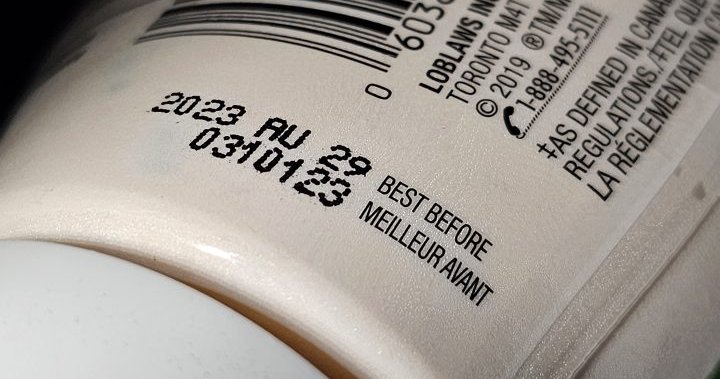Experts argue that Canadians’ misunderstanding of best before dates contributes to excessive food waste and food insecurity, prompting a government committee to call for an examination of the issue. In a report on grocery affordability, the House of Commons committee on agriculture and agri-food suggests that Canada should eliminate best before dates due to the common misconception that they indicate food safety. Instead, experts assert that these dates merely indicate when a product has passed its peak freshness.
According to Kate Parizeau, a food waste researcher at the University of Guelph, there is significant confusion surrounding food labels, with many people mistakenly believing that best before dates are expiry dates. However, Parizeau highlights that very few products in Canada actually have an expiry date. In reality, expiry dates are only found on foods with specific nutritional requirements that may degrade over time, such as baby formula. Best before dates, on the other hand, are required for foods expected to spoil within 90 days. Parizeau observes that food manufacturers and processors often use best before dates on a wide range of products, even when they have limited utility.
Parizeau also emphasizes the importance of consumers educating themselves about food safety in order to determine if groceries are spoiled. She notes that people are often disconnected from their food sources and lack knowledge about when a product was harvested and how long it should remain fresh. As a result, consumers place trust in the stickers and packaging, assuming that the information provided is accurate without understanding the decision-making process behind it.
Lori Nikkel, CEO of Second Harvest Canada, supports the elimination of best before dates, stating that they encourage people to discard perfectly good food while many individuals go hungry due to rising costs. Nikkel’s sentiments are reflected in the government report, which suggests that removing best before dates could prevent edible food from being wasted and save Canadians money on their grocery bills. The report recommends that the government investigate the potential impact of eliminating best before dates on Canadian consumers.
Michael von Massow, an expert in food labeling at the University of Guelph, echoes the support for removing best before dates, noting that they are often misinterpreted. Von Massow suggests that by reducing food waste, households could save money even if prices remained the same. He emphasizes that while the extent to which food waste affects costs is unclear, reducing waste would undoubtedly lower grocery budgets.
The proposal to study the effects of removing best before dates is one of thirteen recommendations in the government report. By addressing this issue, Canada can work towards reducing food waste and improving food security.
(Note: HTML tags
Denial of responsibility! VigourTimes is an automatic aggregator of Global media. In each content, the hyperlink to the primary source is specified. All trademarks belong to their rightful owners, and all materials to their authors. For any complaint, please reach us at – [email protected]. We will take necessary action within 24 hours.


